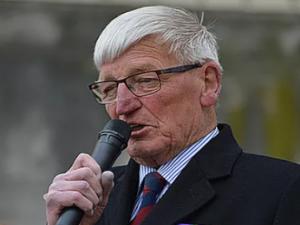
By Sam Tobin
A former soldier facing prosecution over a shooting during Northern Ireland's Troubles is set to find out whether his bid to have his trial heard by a jury has been successful.
The UK's highest court will give its ruling on Thursday in the case of Dennis Hutchings, 78, a former member of the Life Guards regiment, who is charged in relation to the fatal shooting of a man with learning difficulties.
John Pat Cunningham was killed in disputed circumstances in Co Armagh in June 1974.
The 27-year-old was shot in the back as he ran away from an Army patrol. His family contend that he ran across a field because he feared men in uniform.
More than 40 years on, a case was brought against Mr Hutchings after Northern Ireland's attorney general asked prosecutors to review the case.
Mr Hutchings, from Cawsand in Cornwall, is due to stand trial in Belfast charged with attempted murder and attempted grievous bodily harm with intent. He denies the charges.
A panel of five Supreme Court justices in London will rule on Mr Hutchings' challenge to a decision by prosecutors that his trial will be heard by a judge alone, rather than by a jury.
The Director of Public Prosecutions for Northern Ireland can direct a defendant be tried by a judge alone, in what was formerly known as a Diplock court, where a charged offence was "committed to any extent ... as a result of, in connection with or in response to religious or political hostility".
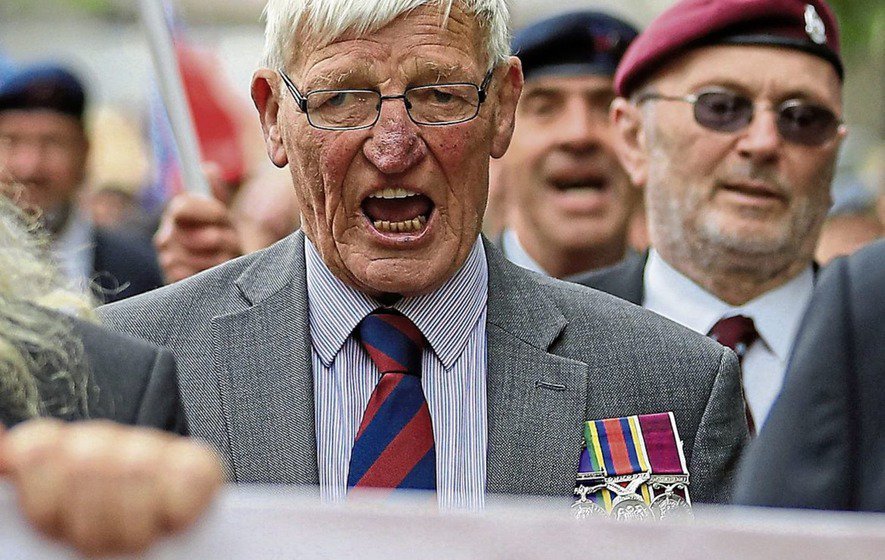
PICTURE: Picture by Gareth Fuller/PA Wire
Prosecutors concluded that, in Mr Hutchings' case, there was "a risk that the administration of justice might be impaired if the trial were to be conducted with a jury".
But at a hearing in March, Mr Hutchings' barrister James Lewis QC said the connection to "sectarian violence as required" by the law was "too remote".
Gerald Simpson QC, for the Director of Public Prosecutions for Northern Ireland, however argued Mr Hutchings' contention that the shooting did not relate to "religious or political hostility" effectively "ignores the reality of the situation which prevailed in Northern Ireland in 1974".
On the same day as the March hearing, Northern Ireland's Public Prosecution Service announced that one former paratrooper would be charged with two counts of murder and four counts of attempted murder on Bloody Sunday.
The veteran, known as Soldier F, will face charges for the alleged murders of James Wray and William McKinney and the alleged attempted murders of Joseph Friel, Michael Quinn, Joe Mahon and Patrick O'Donnell in Londonderry in 1972.


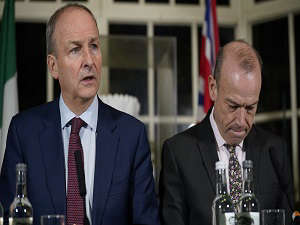 UK and Irish ministers to meet amid row over migration
UK and Irish ministers to meet amid row over migration
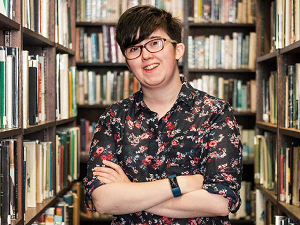 Three men set to go on trial for murder of journalist Lyra McKee
Three men set to go on trial for murder of journalist Lyra McKee
 Swann refuses to rule out resigning if budget is not changed
Swann refuses to rule out resigning if budget is not changed
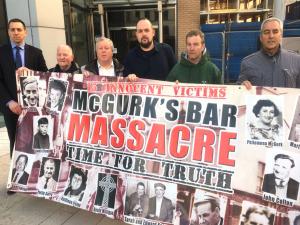 Fresh inquests ordered into deaths of 15 killed in McGurk’s bomb blast
Fresh inquests ordered into deaths of 15 killed in McGurk’s bomb blast